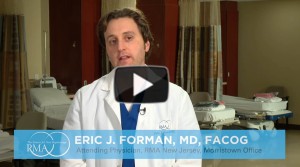ANEUPLOIDY SCREENING FOR IVF
It might sound intimidating and complex but aneuploidy screening using SelectCCS actually helps to answer a very simple question; which embryos have the greatest potential to become a healthy pregnancy and baby?
Humans have 23 pairs of chromosomes, inheriting one copy of each chromosome from either parent. When sperm fertilizes an egg, it creates an embryo which should consist of 23 chromosomes from the mother and 23 chromosomes from the father. But often, embryos are created with too many or too few chromosomes and considered to be unbalanced or aneuploid.
While the reasons for aneuploidy are still being investigated, we do know it’s a major contributor to in vitro fertilization (IVF) failure. It also contributes to miscarriage and increases dramatically with maternal age. Until recently, selecting embryos for IVF transfer was based largely on how an embryo looks, also known as morphology. Often many of the best looking embryos fail to become a healthy pregnancy or successful delivery because of embryonic aneuploidy. One of the most common examples of aneuploidy is Down Syndrome, or Trisomy 21 which is caused by the presence of a third copy of chromosome 21.
Recent scientific and technical advancements have made it possible to screen embryos for their genetic competence and scientifically determine which are euploid, meaning they have the right number of chromosomes.
What is SelectCCS?
SelectCCS is the latest form of aneuploidy screening during IVF and counts all 23 pairs of chromosomes at the molecular level, offering a more comprehensive approach. Previous testing processes only counted a handful of chromosomes and traditional embryo morphology is subject to significant observer variability.
SelectCCS aneuploidy screening requires a biopsy of genetic material from the trophectoderm layer of the embryo at the blastocyst stage. Trophectoderm biopsy has demonstrated to be safer than biopsies performed at the cleavage stage (Day 3) of embryo development. Cleavage stage biopsy has been shown to impair the reproductive potential of an embryo by almost 40%2.
SelectCCS is the most well-validated and proven method of comprehensive chromosome screening (CCS) for patients undergoing IVF treatment.
Developed by the physicians and scientists at Reproductive Medicine Associates of New Jersey, world-renowned leaders in reproductive medicine, SelectCCS improves the embryo selection process by accurately determining which embryos are euploid (normal number of chromosomes with 23 obtained from each parent) or aneuploid (abnormal number of chromosomes).
Euploid embryos have a greater chance to become a healthy pregnancy and delivery than aneuploid embryos. By only transferring those embryos determined to be euploid, patients and healthcare providers can improve their chances of success with IVF.






